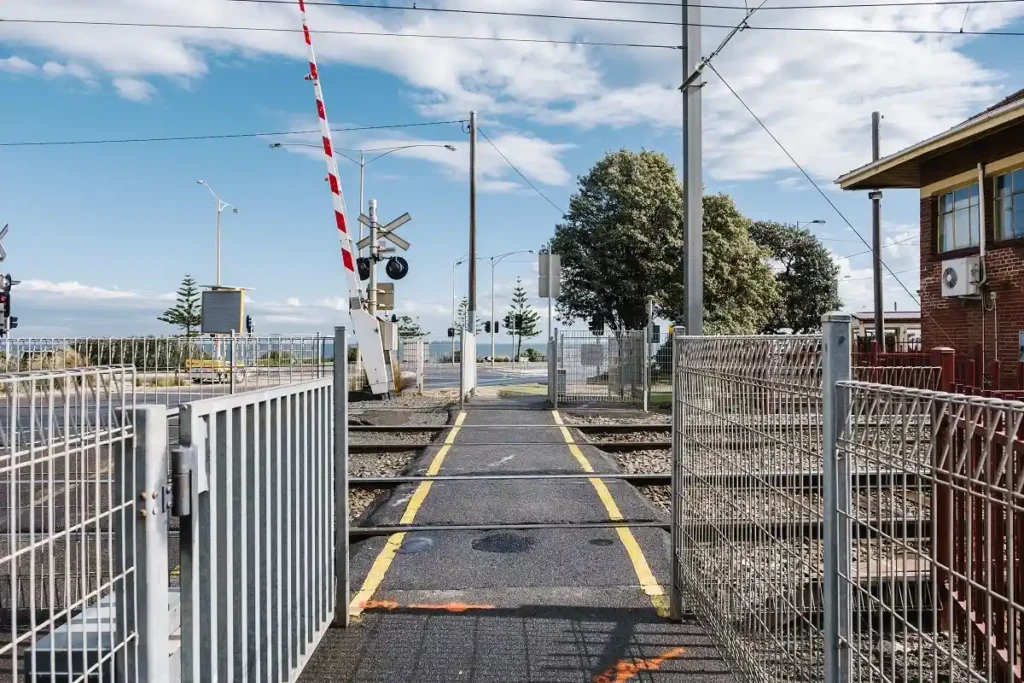Key Takeaways
- Backup generators keep critical home functions—like refrigeration, security, and heating—operational during unexpected outages, reducing the risk of spoilage, discomfort, or safety hazards.
- Expert installation and scheduled maintenance are essential to ensure the system’s reliability, safety, and compliance with local electrical codes.
- When choosing a generator, consider your power demands, available fuel sources, and overall budget to achieve the most reliable and cost-effective solution.
Power outages can strike without warning, disrupting daily routines, endangering stored food, and compromising home security systems. Whether caused by severe storms, grid failures, or unexpected technical issues, losing electricity creates more than just inconvenience—it creates uncertainty. More homeowners are turning to reliable power solutions to stay prepared.
Installing backup generators in Panama City is one effective way to maintain stability during outages. These systems automatically kick in when the power goes out, ensuring critical appliances and systems run smoothly. With a dependable generator, families can avoid the stress and discomfort that often comes with extended blackouts. The peace of mind it offers—knowing your home will remain lit, warm, and functional—is invaluable. As the demand for energy resilience grows, investing in a generator is no longer just a luxury but a smart and proactive choice for modern households.
Understanding Home Backup Generators
Home backup generators are specialized systems that replace your power supply when the main utility electricity fails. Available in several configurations, they provide households with uninterrupted power, allowing day-to-day activities to continue with minimal disruption. There are two primary generator types:
- Portable Generators: These are small, movable units powered by gasoline or propane, ideal for emergencies. They can run essential appliances like refrigerators, lights, or sump pumps, but they are limited in capacity. Operating outdoors and away from windows is crucial to avoid carbon monoxide poisoning, a key safety concern.
- Standby Generators: Permanently installed outside, connected to the home’s electrical system, and fueled by natural gas or propane. They activate automatically during outages, providing power to the entire house or critical circuits. Their automatic operation and high output make them the best choice for reliable power during grid failures.
Choosing between portable and standby generator systems depends on several factors, including the size of your home, your budget, and the level of coverage you need during an outage. While portable generators are budget-friendly and flexible, standby models offer greater capacity and convenience, making them ideal for extended outages or homes with higher power demands.
Choosing the Right Generator for Your Home
To select a generator that reliably protects your household, review your specific requirements and consider these critical factors:
- Power Requirements: Make an itemized list of the appliances and systems that are most essential during an outage—such as refrigerators, freezers, medical devices, sump pumps, and HVAC systems. Calculate their total wattage to determine the minimum generator capacity required for uninterrupted operation. You can find this information in user manuals or on device nameplates.
- Fuel Type: Availability and logistics of fueling your generator matter. Gasoline, propane, and natural gas each have unique benefits and constraints. Gasoline is widely available but may spoil over time and is best for short-term use. Propane can be stored for long periods and is cleaner-burning, while natural gas provides an uninterrupted supply in many urban areas but requires a direct gas line.
- Budget:Factor in the generator’s upfront cost, professional installation, and long-term maintenance. While standby generators require a higher initial investment, the ease of use and reliability often justify the expense, especially in regions with frequent outages.
You should consult a qualified specialist to match your emergency power, comfort, and financial efficiency expectations with the appropriate equipment.
Installation and Safety Considerations
Proper installation protects your investment and your family’s lives. Deploying a backup generator is a complex task that should always be managed by experienced and licensed technicians who adhere to local codes and safety protocols. Attempting DIY installation can be hazardous, leading to electrical risks, carbon monoxide poisoning, or even fire.
- Professional Installation: Licensed installers follow safety guidelines and correctly connect the generator to your electrical panel and fuel systems. They handle permits and site prep and ensure system operation per manufacturer specs.
- Ventilation and Location: To prevent carbon monoxide entry, the generator should be outdoors, away from doors, windows, and vents. Local codes specify minimum clearance distances.
- Using a Transfer Switch: This device safely connects your generator to the main circuit panel, isolating private circuits from the power grid, protecting utility workers, ensuring legal compliance, and enabling smooth power restoration.
Following these guidelines reduces risks and ensures your backup system is prepared for emergencies.
Regular Maintenance for Optimal Performance
Even the best-quality generator systems require routine attention to remain dependable. Neglecting maintenance can lead to engine failure, reduced capacity, or even dangerous malfunctions when you need your backup power source most. Key maintenance tasks include:
- Changing engine oil and air filters regularly as specified by the manufacturer’s guidelines.
- Inspecting fuel tanks, hoses, and valves for leakage, blockages, or wear that can cause operational issues or hazards.
- Running the generator periodically ensures all components function smoothly and identifies warning lights or error codes ahead of time.
Routine maintenance ensures your generator starts when needed and extends its usable lifespan, providing a more significant return on your investment.
Cost-Benefit Analysis of Home Generators
Purchasing a backup generator can be a substantial financial commitment, and weighing the value it provides is an important step. The primary considerations in a cost-benefit analysis include:
- Upfront Costs: Generator prices vary by type, output, brand, and the complexity of installation. Standby generators generally require professional installation and infrastructure changes, increasing the initial investment.
- Operating and Maintenance Expenses: In addition to purchase and installation, account for periodic servicing, parts replacements, and fuel consumption. These operational expenses ensure ongoing functionality and safety.
- Value Provided :Besides comfort and convenience, a generator can help avoid costly losses tied to spoiled food, damage from frozen pipes, and home security lapses. In areas frequently affected by severe weather, having backup power can be a sound financial hedge.
This Consumer Reports guide on generator buying offers more detailed comparisons of generator types and their longevity.
Environmental Impact of Backup Generators
Traditional backup generators, especially older models, burn fossil fuels and emit pollutants, contributing to air quality concerns and increasing your home’s carbon footprint. To reduce the environmental impact of your backup power solution, consider these approaches:
- Opt for modern generator models incorporating advanced emission controls and improved fuel efficiency, which will significantly lower their output of greenhouse gases and particulates.
- Explore renewable and hybrid alternatives—such as integrating a solar power backup system with battery storage—to reduce emissions and reliance on fossil fuels.
- Minimize generator runtime by powering only essential loads during outages and turning off the unit when power is not required, conserving fuel and reducing pollution.
Innovative, energy-smart generator technologies are continually being developed, aligning with growing sustainability initiatives on local and national levels.
Alternative Backup Power Solutions
Many families are now considering eco-friendly and technologically advanced alternatives to traditional fossil-fuel generators, particularly as concerns over climate change and local emissions legislation grow. Notable options include:
- Solar Battery Systems: When combined with rooftop solar panels, battery storage systems capture and store surplus solar energy. During outages, these systems provide silent, reliable power without fuel or emissions, helping you maintain critical home functions while staying green.
- Uninterruptible Power Supplies (UPS): While not intended for whole-home coverage or long-term operation, UPS devices can keep essential electronics and medical devices operational for several hours during short-term outages, buying valuable time until power is restored.
Augmenting your home’s resilience with these emerging backup solutions can lower your environmental impact while providing peace of mind during grid failures.



